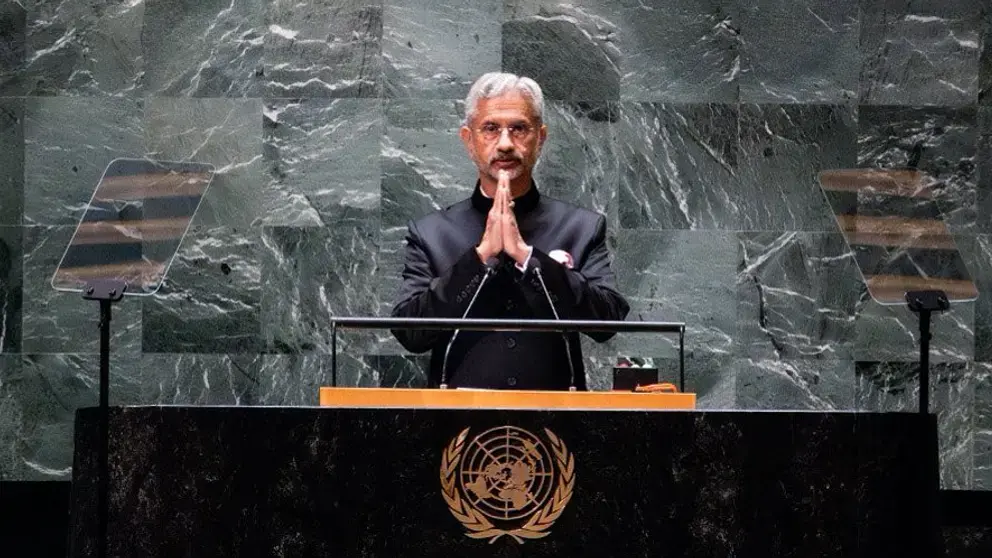
Indian Foreign Minister: Pakistan's Terrorism Policy Will Fail
S. Jaishankar, India's Foreign Minister, emphasized at the United Nations General Assembly that Pakistan's cross-border terrorism policy would not succeed.
He remarked,“Pakistan's GDP should now be calculated based on radicalization and its export in the form of terrorism.”
In his speech at the UN, Jaishankar stated that many countries fall behind due to circumstances beyond their control, but some make deliberate choices with disastrous consequences.
Jaishankar added,“A prime example is our neighbor, Pakistan. Unfortunately, their wrongful actions affect others, especially neighboring countries. When a regime institutionalizes such extremism among its people, its GDP can only be measured by radicalization and its export as terrorism.”
He further emphasized,“Today, we see that the problems Pakistan has tried to impose on others consume its society. It cannot blame the world; this is purely the result of its actions.”
The Indian Foreign Minister was referring to the increased militant attacks by the Tehrik-i-Taliban Pakistan (TTP) on the Pakistani military and the country's economic crisis.
Jaishankar reiterated that Pakistan's“policy of cross-border terrorism” would never succeed and should not expect impunity. He also stressed that all forms and manifestations of terrorism must be firmly opposed, and UN sanctions on global terrorists should not be halted for political reasons.
Meanwhile, Pakistan's Prime Minister Shehbaz Sharif, during the UN session, accused India of Islamophobia and attempting to erase Islamic heritage and civilization. He also called for an end to India's occupation of Kashmir.
The ongoing exchange of accusations between India and Pakistan highlights the deep-rooted tensions that continue to affect regional stability. Both countries remain at odds over key issues, including terrorism, Kashmir, and the broader geopolitical dynamics in South Asia.
The international community must encourage diplomatic engagement between the two nations to address their grievances and prevent further escalation. Without constructive dialogue, the potential for conflict remains high, with consequences that could affect the region and global peace and security.
ShareFacebook Twitter WhatsApp Email Print Telegram
Legal Disclaimer:
MENAFN provides the
information “as is” without warranty of any kind. We do not accept
any responsibility or liability for the accuracy, content, images,
videos, licenses, completeness, legality, or reliability of the information
contained in this article. If you have any complaints or copyright
issues related to this article, kindly contact the provider above.


















Comments
No comment